Introduction
Quail eggs are a nutritious and tasty alternative to chicken eggs that have been consumed for centuries in various parts of the world. They have gained popularity in the health and wellness community in recent years due to their impressive nutritional profile and potential health benefits. In this article, we will provide a complete nutrient guide to the benefits of quail eggs, including their nutritional content, cholesterol levels, and spiritual benefits.
Empower Your Health Journey – Explore My Free Apps for a Vibrant, Healthier Lifestyle Today!
Nutrition Data
Quail eggs are packed with essential nutrients, making them an excellent addition to a healthy diet. One quail egg (10g) contains approximately:
- 14 calories
- 1.2g of protein
- 1g of fat
- 0.05g of carbohydrates
- Vitamins B1, B2, and B12
- Iron, phosphorus, and zinc
Compared to chicken eggs, quail eggs contain more vitamins and minerals per gram, making them a more nutrient-dense choice.
Quail Egg Cholesterol vs Chicken Egg
One common misconception about quail eggs is that they are higher in cholesterol than chicken eggs. However, research has shown that quail eggs have a lower cholesterol content than chicken eggs, with approximately 76mg of cholesterol per 100g compared to 373mg in chicken eggs. This makes quail eggs a better option for people who are concerned about their cholesterol levels.
Please read: ''The Top 25 Foods with Shockingly High Levels of Hidden Sugar''

In addition to being lower in cholesterol, quail eggs have been found to have higher levels of certain nutrients compared to chicken eggs. For example, quail eggs contain more vitamin B1 (thiamine), vitamin B2 (riboflavin), and vitamin A than chicken eggs. They are also a good source of iron, phosphorus, and zinc.
Another benefit of quail eggs is that they are easier to digest than chicken eggs. This is because the proteins and fats in quail eggs are more finely dispersed than those in chicken eggs, which makes them easier for the body to break down and absorb.
Overall, while quail eggs may be more expensive and less widely available than chicken eggs, they are a healthy and nutritious alternative that offers a range of potential benefits. Whether you're looking to mix up your diet or simply want to try something new, quail eggs are certainly worth considering.
How Many Quail Eggs Per Day?
While quail eggs are a healthy and nutritious food, it's essential to consume them in moderation. Most experts recommend consuming no more than two to three quail eggs per day to avoid exceeding your daily cholesterol intake. However, this may vary depending on your individual health needs and dietary requirements.
It's important to note that quail eggs are relatively small in size, with an average weight of around 10 grams each. Compared to chicken eggs, they contain less cholesterol and are a good source of high-quality protein, essential vitamins, and minerals such as iron and calcium.
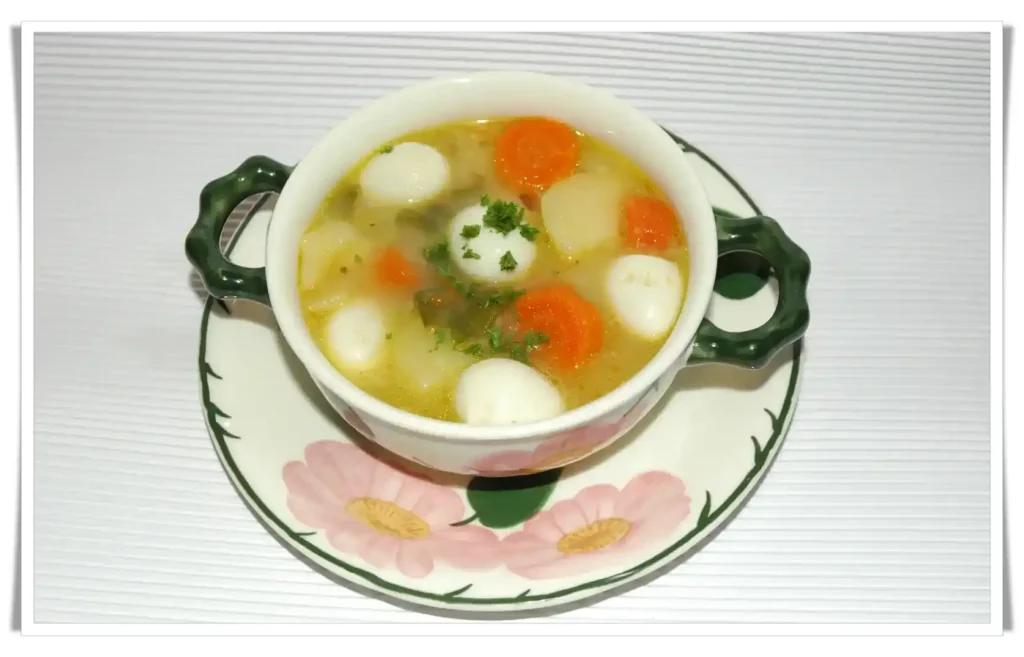
If you're considering incorporating quail eggs into your diet, it's a good idea to speak with your healthcare provider or a registered dietitian to determine the right amount for you. They can evaluate your overall health and dietary needs to help you establish a safe and balanced intake.
In addition to their nutritional value, quail eggs have been associated with several health benefits, including improved digestion, increased energy levels, and enhanced immune function. They are also thought to support heart health by reducing inflammation and lowering cholesterol levels.
1 Quail Egg Equivalent to a Chicken Egg
Although quail eggs are smaller than chicken eggs, they are just as nutritious. One quail egg is equivalent to approximately one-fifth of a chicken egg in terms of nutritional content. This means that consuming a few quail eggs can provide you with the same amount of nutrients as a larger chicken egg.
In fact, some studies suggest that quail eggs may have even more health benefits than chicken eggs due to their higher nutrient density. Quail eggs contain a higher concentration of certain vitamins and minerals, such as vitamin B1, vitamin B2, and iron, than chicken eggs.
Quail eggs are also a good source of antioxidants, which can help protect your body against oxidative stress and inflammation. They may even have potential benefits for people with allergies and respiratory issues, as some studies suggest that consuming quail eggs may help reduce symptoms of asthma and other respiratory conditions.
Please watch the video: The Egg-ceptional Benefits of Quail Eggs: A Complete Nutrient Guide
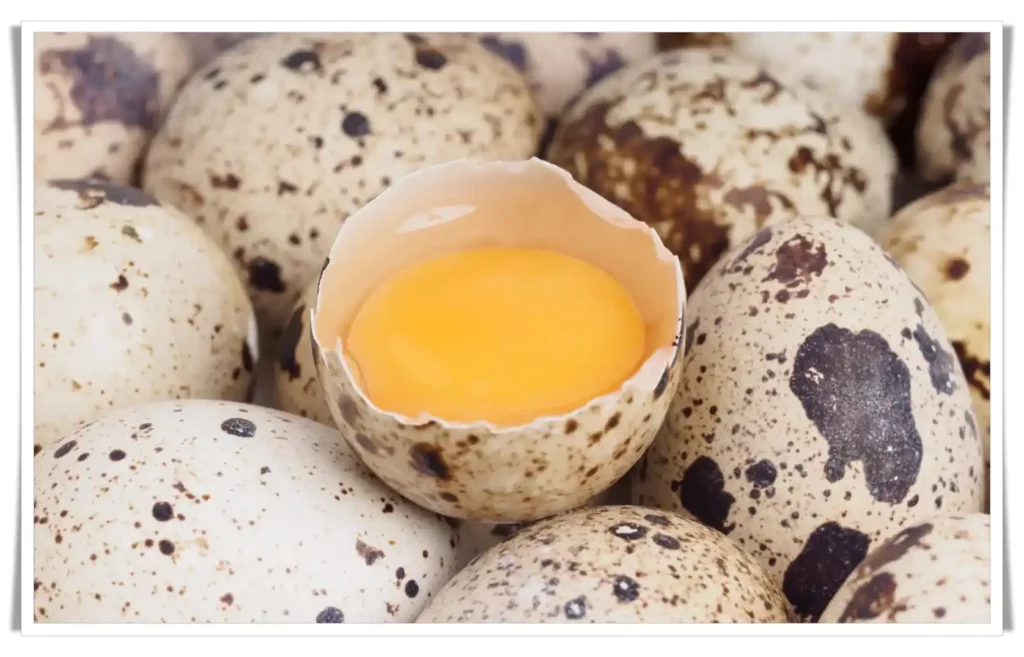
Despite their smaller size, quail eggs are incredibly versatile and can be used in many recipes that call for chicken eggs. They have a slightly richer, creamier taste than chicken eggs, making them an excellent choice for recipes like omelets, frittatas, and baked goods.
Spiritual Benefits of Quail Eggs
Aside from their nutritional benefits, quail eggs are also believed to have spiritual benefits in certain cultures. In traditional Chinese medicine, quail eggs are thought to promote healing and improve vitality. In Ayurvedic medicine, they are believed to improve digestion and strengthen the immune system.
Furthermore, quail eggs have also been used in certain spiritual practices and rituals. In some cultures, they are considered to be a symbol of fertility and abundance and are used in fertility and pregnancy rituals.
In addition to their cultural significance, quail eggs can also have a positive impact on mental and emotional health. They contain an amino acid called tryptophan, which is essential for the production of serotonin, a neurotransmitter that helps regulate mood, sleep, and appetite.
Consuming quail eggs may help boost serotonin levels, which can have a calming and mood-enhancing effect. This may be particularly beneficial for individuals with depression or anxiety.

Moreover, quail eggs have also been used in some spiritual practices to promote spiritual growth and enhance intuition. They are believed to have a subtle energy that can help balance and harmonize the body and mind, allowing for greater spiritual awareness and connection.
How to Eat Quail Eggs
Quail eggs can be cooked in various ways, just like chicken eggs. They can be boiled, fried, poached, or used in recipes such as quiches and omelets. However, due to their small size, they can be tricky to handle. To make them easier to peel, it's recommended to boil them for approximately 2-3 minutes before placing them in cold water.
Once cooked, quail eggs can be enjoyed in a variety of ways. They can be served on their own as a nutritious snack or appetizer, or incorporated into dishes like salads, soups, and sandwiches.
One popular way to enjoy quail eggs is in a traditional Japanese dish called oyakodon, which is made with rice, chicken, and quail eggs. In Korea, quail eggs are often pickled and served as a side dish, while in Italy, they are used to make frittatas and other egg dishes.
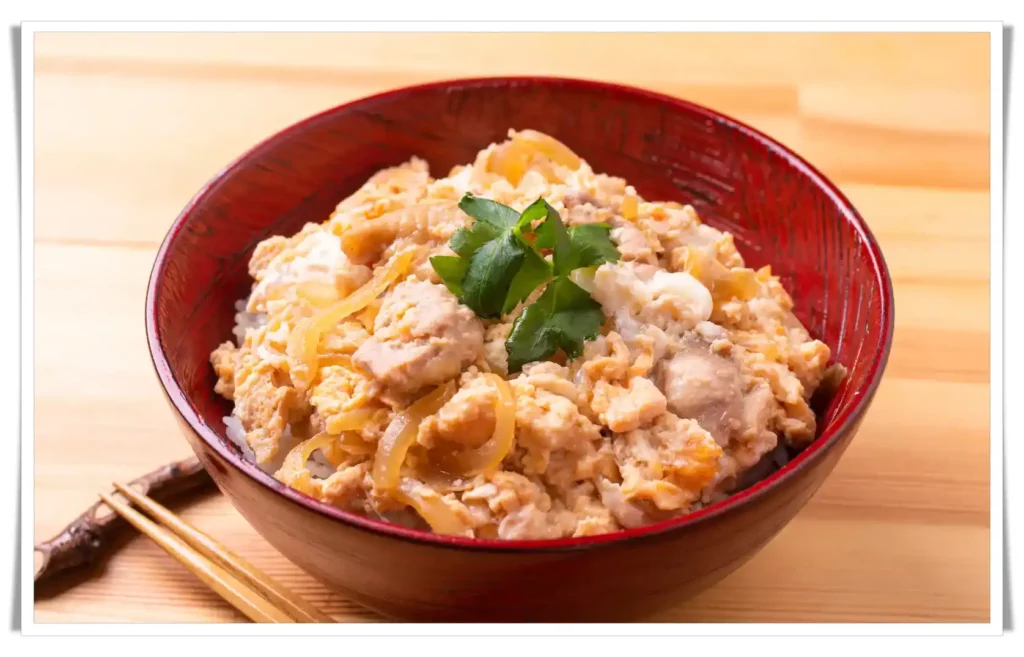
Quail eggs can also be used in baking to add richness and flavor to cakes, cookies, and other desserts. They can even be used to make homemade mayonnaise, hollandaise sauce, and other sauces and dressings.
When purchasing quail eggs, it's important to choose fresh, high-quality eggs from a reputable source. They should be free of cracks and blemishes, and stored in the refrigerator until ready to use.
Quail Egg vs Chicken Egg
While both quail eggs and chicken eggs are nutritious, they have some key differences in terms of their nutritional content. Quail eggs contain more vitamins and minerals per gram, while chicken eggs have a higher protein content. Additionally, quail eggs are lower in cholesterol than chicken eggs, making them a healthier option for people who need to watch their cholesterol levels.
Quail eggs are also higher in fat compared to chicken eggs, which may make them less suitable for people who are trying to limit their fat intake. However, the fat in quail eggs is mainly unsaturated, which is considered to be a healthier type of fat compared to saturated and trans fats.
Another difference between quail eggs and chicken eggs is their size. Quail eggs are significantly smaller than chicken eggs, which can make them more challenging to handle and prepare. However, their small size also makes them a convenient option for portion control and for adding variety to meals.
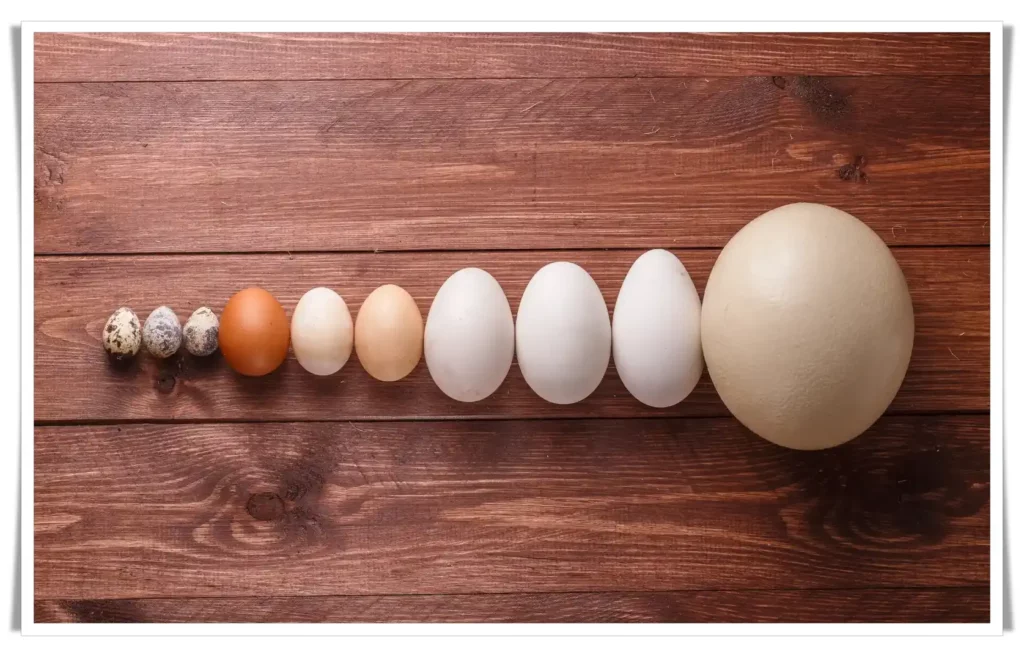
One advantage of chicken eggs over quail eggs is their availability and affordability. Chicken eggs are widely available and relatively inexpensive, while quail eggs can be harder to find and more expensive, especially in some parts of the world.
In terms of taste, quail eggs have a slightly richer, creamier taste compared to chicken eggs, which can make them a great addition to certain dishes. However, some people may find the taste of quail eggs too strong or gamey for their liking.
Relevant Scientific Studies about Benefits of Quail Eggs
Several scientific studies have been conducted on the potential health benefits of quail eggs. One study published in the Journal of Medicinal Food found that quail eggs could help improve blood glucose levels and decrease oxidative stress in people with type 2 diabetes.
Another study published in the Journal of Nutrition and Metabolism found that quail eggs had a positive effect on serum lipid profiles, helping to reduce LDL (bad) cholesterol levels in the blood. Additionally, quail eggs have been found to contain high levels of antioxidants, which can help protect against cell damage and prevent chronic diseases such as cancer and cardiovascular disease. Despite their small size, quail eggs are also packed with essential nutrients, including vitamins A, B2, and E, as well as minerals such as iron and zinc.
Quail Eggs vs. Chicken Eggs: What’s the Difference in Nutrient Content?
While quail eggs have less cholesterol than chicken eggs, they are also lower in other nutrients, such as vitamin B12 and vitamin D. However, quail eggs are higher in other nutrients, such as iron and zinc. Here’s a breakdown of the nutrient content of one quail egg and one chicken egg:
| Nutrient | Quail Egg | Chicken Egg |
|---|---|---|
| Calories | 14 | 72 |
| Protein (g) | 1.17 | 6.24 |
| Fat (g) | 1.04 | 4.76 |
| Cholesterol (mg) | 9 | 186 |
| Vitamin A (IU) | 64 | 244 |
| Vitamin B12 (mcg) | 0.15 | 0.44 |
| Vitamin D (IU) | 5 | 17 |
| Iron (mg) | 0.42 | 0.88 |
| Zinc (mg) | 0.13 | 0.65 |
Quail Egg Nutrition Data
Here is a complete list of the nutritional data for one quail egg:
- Calories: 14
- Protein: 1.17 grams
- Fat: 1.04 grams
- Cholesterol: 9 milligrams
- Carbohydrates: 0.04 grams
- Sugar: 0.03 grams
- Fiber: 0 grams
Study for Comparison of Physicochemical and Microbiological Qualities of Processed Quail Eggs
Processing technologies can affect the nutrient content of quail eggs. Although freeze-drying is the most optimal method, it is expensive and difficult to implement for quail egg producers. In this study, the quality of liquid, pasteurized, hot air-dried, and freeze-dried quail eggs was compared. Liquid quail eggs were used as a control. The physicochemical and microbiological qualities were assessed using conventional methods.
The results indicated that freeze-dried and hot air-dried quail eggs were significantly different from liquid and pasteurized quail eggs in all evaluated parameters. Pasteurized quail eggs were more concentrated in dry matter and fat, with a more basic pH than liquid eggs. Only total mesophilic aerobic germs were present with a significant difference between liquid, hot air-dried, and freeze-dried quail eggs.
However, the load was lower than the standard. Total coliforms, Enterobacteriaceae, yeasts, molds, Salmonella, and Staphylococcus aureus were absent in all egg products. Hot air drying and pasteurization were deemed transferable and suitable for quail egg processing.
Quail Eggs: A Nutritious Superfood for Optimal Health
- Rich in protein: Quail eggs are an excellent source of protein, which is vital for various processes in the body. Proteins consist of building blocks called amino acids, which are used to build and repair muscles and bones, make hormones and enzymes, and provide energy.
- Reduce the risk of anemia: Anemia is a condition in which the body lacks enough red blood cells, causing fatigue and shortness of breath. Quail eggs are iron-rich and can help reduce the risk of anemia. Iron is crucial for growth and development, and the body uses it to make hemoglobin, a protein in red blood cells that transports oxygen from the lungs to all parts of the body.
- Balance cholesterol: Quail eggs contain beneficial fatty acids that boost heart health, with 60% of the fat being the "good" form of cholesterol. This helps balance the negative effects of "bad" cholesterol.
- Cleanse your body: Quail eggs may help rid the bloodstream of toxins, pollutants, and heavy metals. A study suggests that quail eggs prevented liver damage caused by toxicity in rats, and scientists are hopeful that similar results can be obtained for humans.
- Boost immunity: Quail eggs contain significant amounts of vitamin C and vitamin A, which can neutralize free radicals and protect health by combating cell damage that can cause illness and aging.
- Treat allergies: Quail eggs contain ovomucoid protein, a natural anti-allergenic, which can help alleviate congestion, inflammation, and other symptoms caused by an allergic reaction.
- Increase energy: Quail eggs provide an energy boost, especially when combined with a carbohydrate, which can be an effective alternative to caffeine or other stimulants when consumed as part of a balanced and nutrient-rich diet.
- Boost metabolism: The vitamin B in quail eggs helps support the body's metabolism, which converts food and drinks into energy while building or repairing the body and its organs.
- Improve vision: Quail eggs contain high amounts of vitamin A, which can help prevent cataracts and other vision problems while supporting the heart, lungs, kidneys, and other organs.

Nutrient Benefits of Quail (Coturnix Coturnix Japonica) Eggs - Study by College of Public Health Sciences, Chulalongkorn University, Bangkok
The study conducted a cross-sectional evaluation of the nutritional compositions of quail eggs, including carbohydrates, fat, protein, calories, vitamins, minerals, and sex hormones. Quail eggs are a popular food choice in many Asian countries due to their small size and reported high nutritional value, but there has been a lack of scientific data regarding their nutrient content. This study aimed to fill this gap in knowledge and provide more information about the potential health benefits of consuming quail eggs.
Quail eggs were collected from local markets in Ayutthaya province, and triplicate samples were taken for analysis. The eggs were carefully handled and transported in an ice box to the laboratory, where they were kept in a refrigerator before analysis. The samples were then prepared and analyzed for chemical compositions, amino acids, fatty acids, and vitamins.
The results of the study showed that the average weight of each whole quail egg was 10.67 g, with contents of ash, carbohydrate, fat, protein, and moisture at 1.06, 4.01, 9.89, 12.7, and 72.25 g per 100 g, respectively. The total energy obtained in calories was 156.50 kcal per 100 g of the whole egg. The most essential amino acid found in egg whites was leucine, while the most non-essential amino acid was aspartic acid.
Egg yolks contained the highest essential fatty acid content of linoleic acid and the highest non-essential fatty acid content of oleic acid. Additionally, there was a high content of vitamin E in egg yolks and the sex hormone progesterone in both egg yolks and whites. The most essential and trace minerals found in whole eggs were nitrogen and iron, respectively. Iron was found to have a high content in egg whites, while nitrogen and zinc were found to be high in egg yolks.
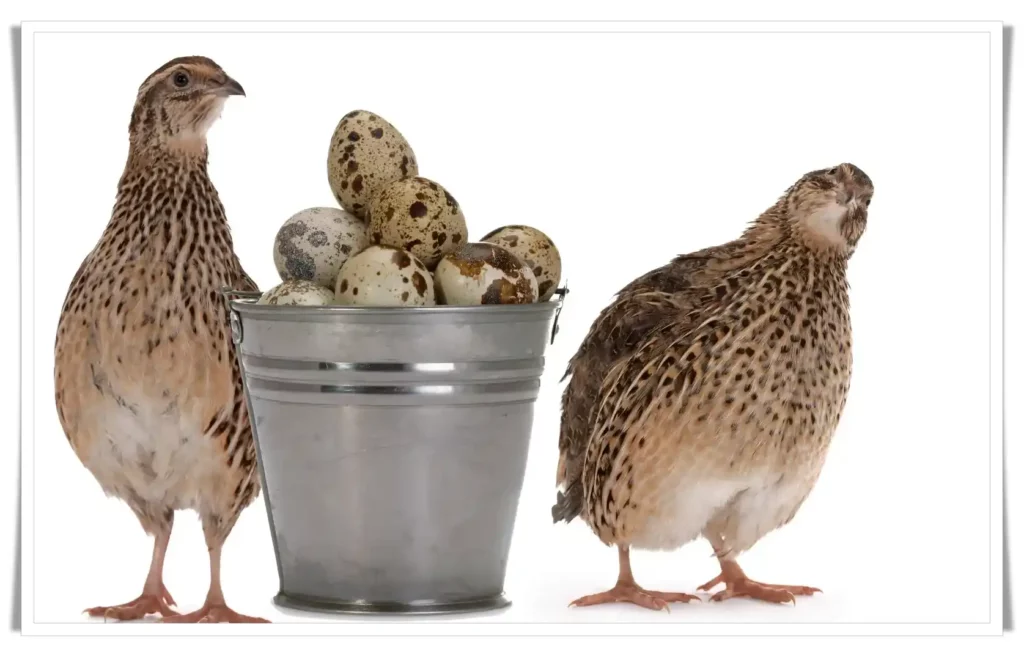
Overall, this study indicated that quail eggs contain high nutritional content of amino acids, fatty acids, vitamin E, sex hormone P, and minerals of nitrogen, iron, and zinc. Quail eggs are a good source of nutrients for human health and could potentially be a solution to the world food problem for developing countries. Regular consumption of quail eggs may also help prevent and combat various diseases, such as digestive tract disorders, anemia, and kidney, liver, or gallbladder stones.
In conclusion, this study provides valuable insights into the nutritional content and potential health benefits of quail eggs. Further research is needed to confirm these findings and explore the full range of benefits that consuming quail eggs may offer. However, the results of this study suggest that quail eggs are a nutritious and healthy food choice that could have significant benefits for human health.
Conclusion
Quail eggs present a unique substitute for chicken eggs, despite their diminutive size. They are abundant in vitamins, minerals, and antioxidants, rendering them highly nutritious. Nonetheless, their cost is relatively higher than that of chicken eggs. Moreover, since most quail eggs are unpasteurized, individuals with weakened immune systems or pregnant women should consume them only when cooked thoroughly. Incorporating quail eggs into your diet can be a delectable and healthful method of diversifying your protein sources.
If you have questions or want to comment, please leave them below and I will answer as soon as I can.
Thank you for reading ''The Egg-ceptional Benefits of Quail Eggs: A Complete Nutrient Guide''

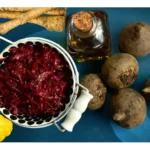

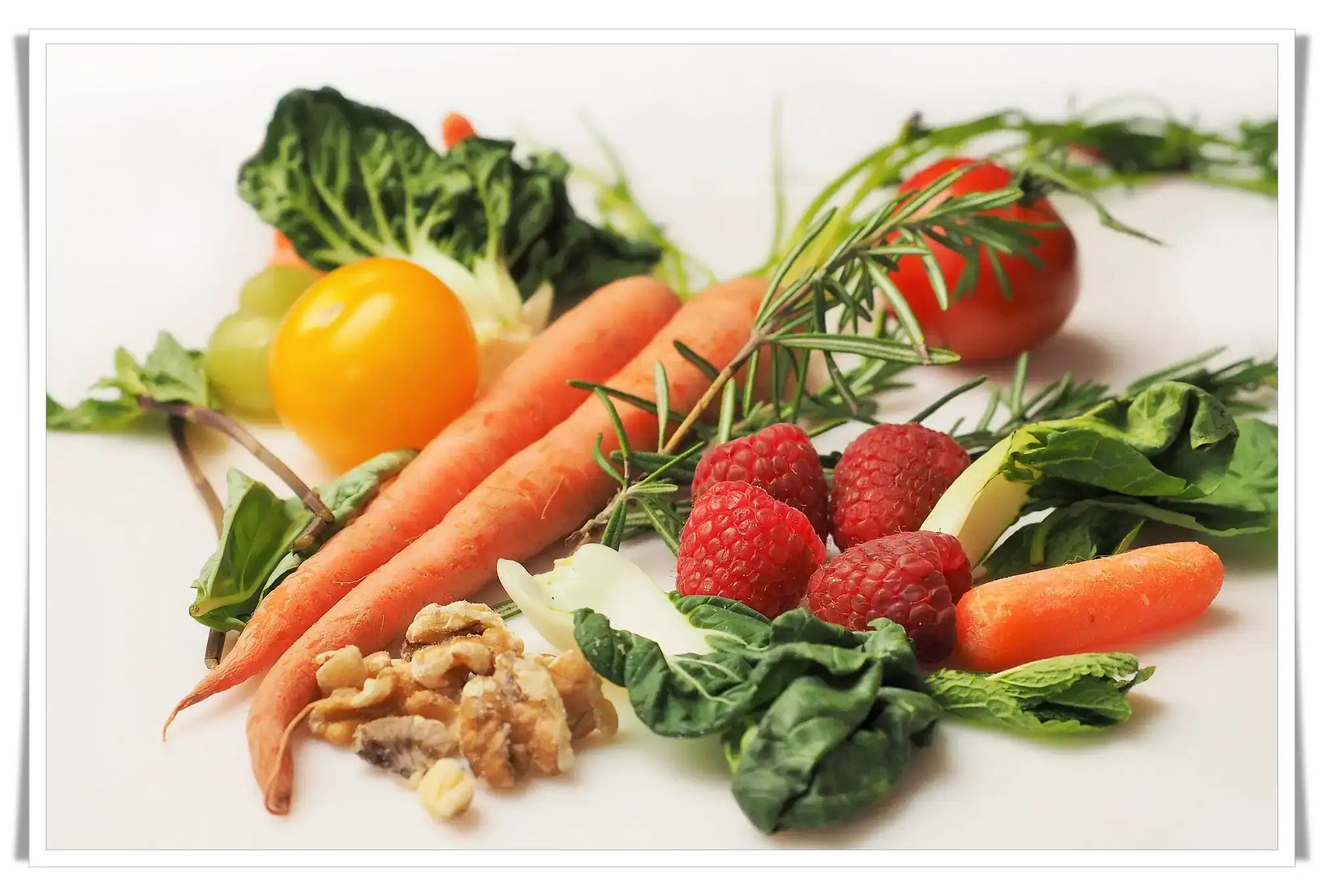
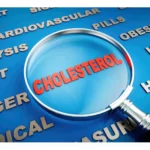
Hey there! I just wanted to drop a quick comment about this blog post. I absolutely loved this article! The author did an excellent job of explaining the benefits of quail eggs in a way that was easy to understand and follow. I appreciate that the article covered everything from the nutritional content to the spiritual benefits of quail eggs.
Wow, wonderful blog structure! How lengthy have you ever been running a blog for?
you made running a blog glance easy. The total glance of
your site is wonderful, as smartly as the content!
You can see similar: najlepszy sklep and here e-commerce
Wow, awesome weblog structure! How long have you ever been running a blog for?
you make running a blog look easy. The overall look of your site is wonderful, as well as the
content!
I saw similar here: sklep online and also
here: sklep internetowy